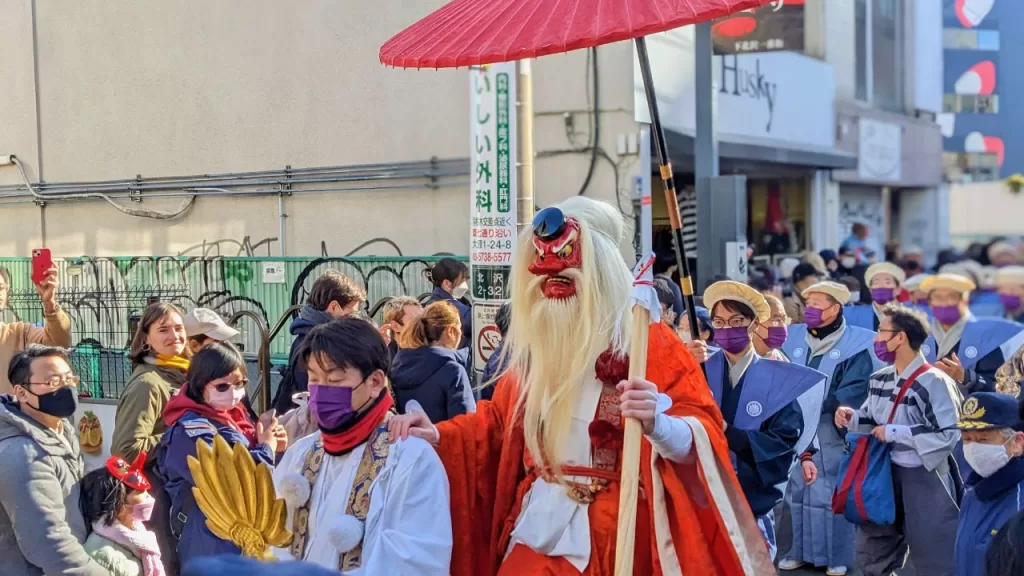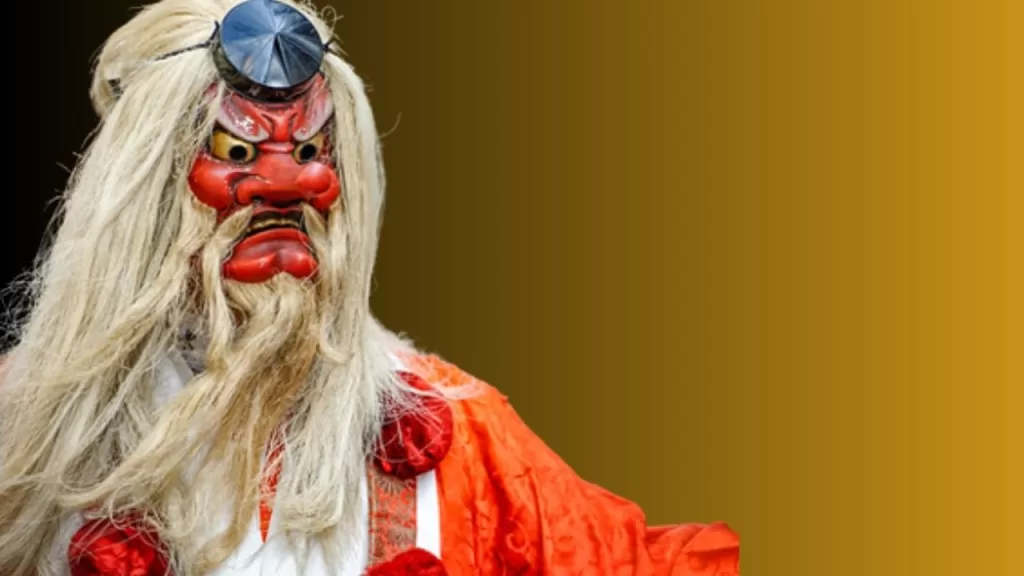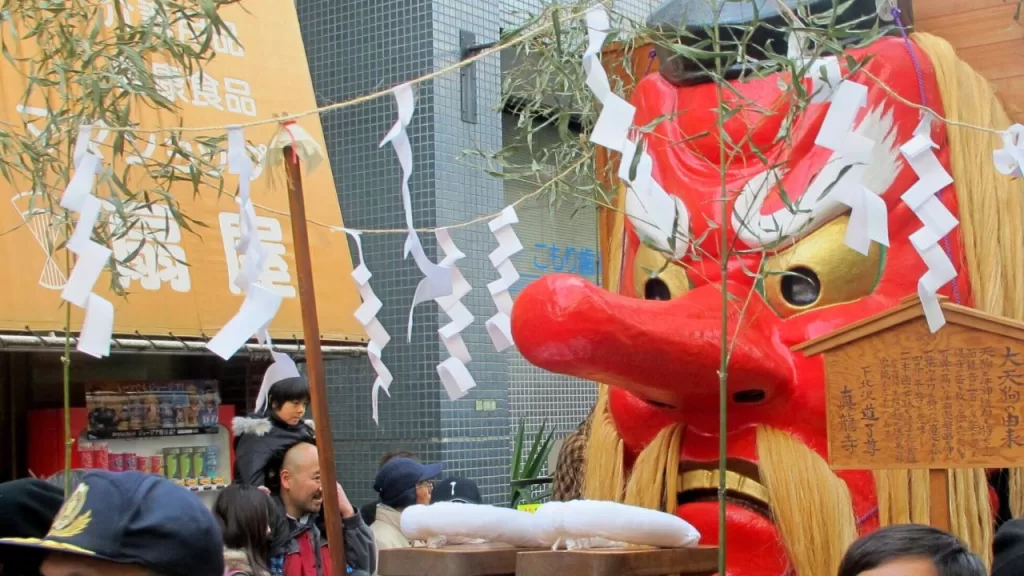Announcing the Return of the 91st Shimokitazawa Tengu Festival
Shimokitazawa Tengu Festival
After several years of cancelations, excitement builds as the 91st Shimokitazawa Tengu Festival gets the green light to proceed.
Experience the Vibrant Tokyo Events in January at the Shimokitazawa Tengu Festival, a Celebration of Culture and Tradition.

What to Expect at the Shimokitazawa Tengu Festival?
The Shimokitazawa Tengu Festival occurs every year during Japan’s Setsubun Festival, celebrated a day before spring as noted in the ancient Japanese calendar. This traditional celebration sees many Tengu, demon-like characters prowling the streets of Shimokitazawa.
Residents partake by scattering roasted soybeans around these figures and chanting “Fuku wa uchi!” (“Fortune in!”) three times. While it is common in Japan to immediately follow with “Oni wa soto!” (“Demons out!”), this phrase is prohibited during this particular event. The tradition originates from a belief that Tengu merely needs to hear wishes of good fortune to vanish; additionally, Tengu is viewed as the bringer of luck.
Honouring the Tengu at Sotoshu Daiyuzan Shinryuji Temple
The event takes an unconventional turn at Sotoshu Daiyuzan Shinryuji temple, where they honor rather than banish these supposed ‘evil spirits.’ Worth safeguarding, these unique tengu guard this very temple from more numerous evils.
Pre-event festivities kick off on the night of January 27th. A tengu will appear alongside his group at various restaurants while conch shells are sounded and drums beat to signal the start of the Setsubun Eve Tengu Ceremony. From there, on January 28th, locals, including shop owners, priests, and other temple attendees, pay tribute to their revered Tengu through a ceremonial parade called ‘Journey to the Heavenly Tengu.’ Beans are thrown during this respectful procession.

Next up on January 29th, an interesting game awaits visitors as they’re encouraged to partake in a shopping stamp rally at selected local stores. Participants will use these stamps for a chance to pour an exact amount of soybeans into a bag and win prizes.
Three-Day Celebration
Known locally as Shimokita Tengu Matsuri (しもきた天狗まつり) or Long Red-nosed Goblins Festival, this mammoth celebration occurs over three days each year, ending in late January/early February. It serves as an homage to Tengu, the Japanese god of mischief, also considered a patron saint for martial arts. This entity, often referred to as the “Slayer of Vanity,” enjoys playing tricks on those showing signs of arrogance or people intentionally using their knowledge or authority to gain fame.
A procession traverses through streets close to Shimokitazawa Station’s north exit in Tokyo to mark this eccentric festival. As part of customized attire and accompanied by drummers, costumed figures pause intermittently for a “Mame maki” or bean-throwing ceremony aimed at warding off any residual bad luck or evil from the previous year. This practice is sustained at Shinryuji Temple, with bystanders attempting to catch these roasted soybeans, which also serve as delicious snacks.

An Unforgettable Cultural Experience
Artfully dressed marchers populate festive processions wearing vibrant costumes with masks representing formidable red-nosed Tangu creatures. These supernatural entities familiar from Japanese folklore must be warded off from causing harm to humans.
Audiences animate proceedings by yelling “Demons outside!” or “Oni-wa-soto!” and casting out bean seeds that symbolically rid bad luck and repel demons. According to Japanese folk traditions, demons are repelled from happy places; thus, scattering beans coupled with a joyful festival ambiance assures demons’ disappearance, hence the dissolution of evil forces.
Visiting Tokyo during this cultural extravaganza promises participants an enriching cultural experience and an opportunity to explore further wonders within Tokyo – particularly the trendsetting hub, Shimokitazawa.
Shimokita or Shimo, fondly referred to by locals, takes pride in its reputation as one of Tokyo’s hippest quarters. Designed with an array of trendy shops and cafes besides being renowned for vintage clothing, Shimokitazawa ensures extending your stay beyond that afternoon antiquing trip won’t be a regretful decision. Connect via Odakyu or Keio Inokashira Lines for easy access.
Planning Your Visit
While scheduling your visit to Shimokitazawa Tengu Festival, usually held toward the end of January or the start of February, ensure checking accommodation prices well in advance owing to the expected high demand during the festival period, ensuring guaranteed availability on desired dates.
Shimokitazawa Tengu Festival Unites Geikosai New Year’s Festival for a Spectacular Blend of Tradition and Celebration.